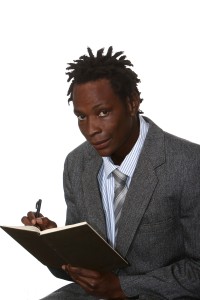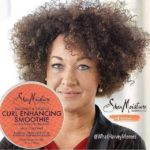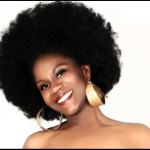A few years ago, the business school at Hampton University, one of our nation’s top historically Black universities, implemented a policy that banned natural hairstyles for its male students. The university declared ‘braids, dreadlocks and other unusual hairstyles are not acceptable’ for majors in their five-year master’s of business administration program.”
At the time, Hampton Business Dean Sid Credle rationalized the policy by saying,
“We don’t have problems with Afros. A nicely tapered Afro – that’s fine. [But when] we look at the top 75 African Americans in corporate America, we don’t see any of them with extreme hairdos.”
Did you catch that? “Nicely tapered” Afros (whatever that means) are fine. But anything else that is not permed or otherwise straightened is in the category of “extreme” or “unusual” hairdos.
As noted by actress Tracie Thoms in Chris Rock’s film Good Hair, “I always think it’s interesting that to keep my hair the same texture as it grows out of my head, is looked at as revolutionary.”
A recent update about the policy on ABC News revived discussion about the controversial policy. Articles featured on theGriot.com, Black Enterprise, and Madame Noir, all asked similar questions, namely – is the policy correct? Is it necessary to conform Black hair so that it looks like the hair that grows from our White colleagues’ heads in order to advance in the corporate world? I would actually push this question one step further: in light of all the issues related to an abysmal Black self image – including our community’s loosing battle with the Doll Test – is it worth it?
Indeed, I think we are the only people in the world for whom wearing our hair in styles suited to the way God designed our hair to grow, is considered extreme or revolutionary. This speaks to the power of the Black inferiority campaign – a campaign that says Black people are so inferior and outside of the norm, that even our very hair texture must be transformed in order to be made acceptable to the rest of society.
When these messages are reinforced and supported by institutions like Hampton, it’s no wonder our children pick out that White doll as the more beautiful, smarter, kinder doll. It’s no wonder most of us struggle to find beauty in ourselves even as we grow into adulthood.
Now when I first read about Hampton University’s policy, it was 2006 and my nappy hair and I were sitting in my office at a major New York law firm in the middle of Times Square (aka Corporate America Land). My hair was in a flat twist style in the front that pulled back into a big poofy Afro ponytail.
The irony of what I was reading compared to the way I was wearing my hair that day always struck me as significant.
I had been in Corporate America Land for a few years by that point and wearing my hair natural was not considered “extreme” by any of my employers. In fact, based on the sizable number of natural head Black professionals (lawyers, bankers, etc.) in my circles at the time, none of their employers seemed to have any issues with their hair either. While conducting the research for my book, I repeatedly heard the same story: Black professional natural heads weren’t getting hair hate from their White employers. But, they were getting lots of hair hate from other Black co-workers.
Time and again I heard stories of how Black professional naturals went to work prepared for and expecting to deal with hair issues from their White co-workers. They anticipated that the main issues they would have about their hair would come from White people. Yet time and again – the main folks pushing a “you need to do something with your nappy hair so you look professional” mantra were other Black people.
This perverse relationship really highlights what can happen when we become the gatekeepers of our own prison. This is what it looks like when we adopt a value system that is antithetical to who we are and attempt to align ourselves with it.
Admittedly, there are many companies and institutions that frown on locks and other natural hairstyles. But as I previously stated, one of the main reasons they can do that is because members of our community (I’m looking at you Dean Credle!) sanction that belief system. Decisions like the one made by Hampton University reinforce the notion that wearing our hair in styles that are appropriate for the way God designed our hair to grow is inherently unnatural and extreme.
Now the policy itself would have been enough were it not for Mr. Credle’s most recent rational for the policy. He literally stated that
“cornrows and dreadlocks aren’t necessarily tied to our culture. ‘When was it that cornrows and dreadlocks were a part of African American history?’”
Suggesting that cornrows and dreadlocks aren’t tied to our culture is like suggesting that having Black skin doesn’t necessarily mean our ancestors came from Africa. This statement conveys an ignorance of Black cultural heritage that is both shocking and embarrassing for a high level administrator at any institution but most especially one at an HBCU.
In fact – if these same words were uttered by a White dean – I can only imagine the amount of push back he would get.
Thankfully the policy was met with some early resistance. Former Essence Magazine’s editorial director Susan Taylor canceled a speaking engagement at Hampton after she learned about the rule. Speaking about the incident, Taylor stated:
“As a businesswoman and public figure who has proudly worn my hair braided for more than 25 years, I was incredulous and felt insulted . . .I easily made the decision to cancel my visit . . .The freedom to wear our hair in ways that celebrate our heritage is one of our ‘rites of passage.’ Students would benefit from learning how to care for and groom locks and braids and wear them in ways that are appropriate in a business setting.”
(Snapping fingers!) I’ve always loved Ms. Taylor – but when she said this, my respect for her grew immensely. Taylor said that she urged Hampton University President William Harvey to reconsider their policy. Most importantly, she noted that one of the most significant challenges Black students will face once they enter corporate America:
“is remaining whole and true to themselves in environments that are often hostile to African-Americans. Staying connected to our community and culture is critical. Trying to transform themselves to fit into hardly welcoming environments has scarred countless numbers of Black people.” (emphasis added).
Let’s hear it for some truth Ms. Taylor! I’d be willing to bet that you may know one or two of those Black folks who were scarred by trying to squeeze themselves into unwelcoming (i.e. racially hostile?) working environments. It’s not a pretty picture.
Now maybe this won’t change Hampton’s policy. But it should at least get us talking about some of the more significant questions. At what point should our community draw the line at trying to conform to another culture’s “look”? At what point will we recognize that White folks aren’t really concerned about our hair? When will we push the conversation further and deal with the fact that it’s typically BLACK people who have issues with Black hair? More importantly – how do we in the natural hair movement push beyond the “trends” of nappiness and create room for more natural heads to climb the ladders of success while remaining true to who we are?





Let us not forget facial hair. We seem to easily conform to hairless faces. I have worn my facial hair since I started to grow it.
Howdy! I’m at work surfing around your blog! Just wanted to say I love reading your blog and look forward to all your posts! Keep up the excellent work!
Thanks!